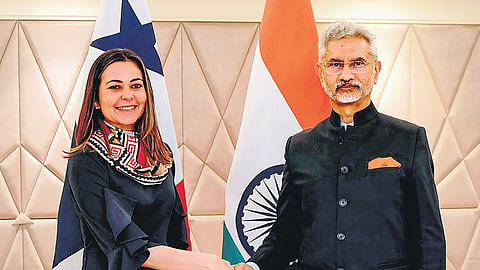EAM calls for UN reforms amid multilateralism debate
NEW DELHI: External Affairs Minister S Jaishankar has spoken about the need to revamp global bodies like the United Nations, arguing that they have not found multilateral solutions to all big issues in the recent past.
“It is equally important that global rules are not gamed for unilateral benefits. India has shown that values, interests, and sentiments can all contribute to the common good,” said Jaishankar during the Raisina Dialogue on Thursday.
Multilateralism will exist alongside national interests, said Jaishankar, pointing towards India’s experience with the fallout of the decision to take the Kashmir dispute to the UN soon after independence.
“Look at our own example. Very literally in our first year of Independence, we put our trust in multilateralism and took the Kashmir aggression issue to the UN, and others made it into an accession issue, doing so for geopolitical reasons,” said the minister, adding that it is not that we should be against multilateralism.
“Multilateralism is a kind of lowest common denominator and anything above that. It will exist side-by-side with national interests, with the calculations and competitions of countries,” he added.
On the issue of reforming the UN, Jaishankar said the world body was formed with about 50 members and its membership has now grown almost fourfold. “So, it’s a common-sense proposition that you can’t continue the same way when you have four times the members,” he said, adding, “If you look at the last five years, we have not been able to find multilateral solutions to all the big issues. So, the results or the lack of results demonstrate the case for reform.”
Speaking about the Indo-Pacific, Dammu Ravi, secretary of Economic Relations at MEA, said that the focus and growth of the Indo-Pacific did not happen in a vacuum.
“Various factors such as the synergistic relations among countries in the region played an important role. Trade and technology have and will continue to be a fulcrum of growth and development in the Indo-Pacific with India at the centre of this growth,” Ravi said.
During the course of the Raisina Dialogue, a lot of discussions took place around connectivity and the India Middle East Europe Economic Corridor. However, with two raging conflicts (Russia-Ukraine and Israel-Hamas ) this is still a work in progress.

